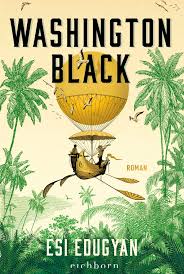
The Significance of Washington Black
Washington Black, a fictional character from Esi Edugyan’s acclaimed novel, has emerged as an important figure in contemporary literature, illuminating the complexities of history, race, and resilience. The book, which won the Giller Prize in Canada and was a finalist for the Man Booker Prize, tells the story of a young enslaved boy who escapes a plantation in Barbados and embarks on a journey across the globe. This narrative sheds light on the life of an individual navigating the stark injustices of slavery while also celebrating human ingenuity and spirit.
Plot Overview
The novel follows the life of Washington Black, or ‘Wash’, beginning with his challenging upbringing on the plantation of a cruel slave owner. His story takes a pivotal turn when he is taken under the wing of the plantation’s master’s brother, Christopher ‘Titch’ Wilde, an inventor whose passion for his craft offers Washington a glimpse of freedom and hope. Through adventure and self-discovery, Washington experiences a breadth of cultures and faces numerous challenges that test his resolve.
Historical Context
Set against the backdrop of the 19th century, Washington Black reflects the historical realities of slavery and its aftermath, presenting a nuanced discussion about race and identity. The novel is set during the abolitionist movement—a time when the notion of freedom was fiercely fought for by many. This context not only solidifies the urgency and relevance of Washington’s journey but also serves as a commentary on contemporary struggles against systemic racism.
Impact and Themes
At its core, the story of Washington Black is about the quest for freedom—not just the physical act of escaping enslavement, but the larger pursuit of identity and self-worth. Edugyan’s compelling prose evokes emotional depth, allowing readers to connect with Wash’s experiences and the broader implications of his journey.
Conclusion
Washington Black’s journey is more than a tale of survival; it is a powerful narrative that challenges readers to confront uncomfortable truths about history and our present. The book encourages discussions about race, the lingering effects of colonialism, and the complexities of freedom in a modern context. As we reflect on Washington’s legacy, it is essential to recognise the ongoing struggles for justice and equality in our society. This story not only progresses our understanding of the past but inspires hope for a more equitable future.
You may also like

The Importance of Storytelling in Modern Society

Understanding the Fall Season: Change, Beauty, and Tradition
